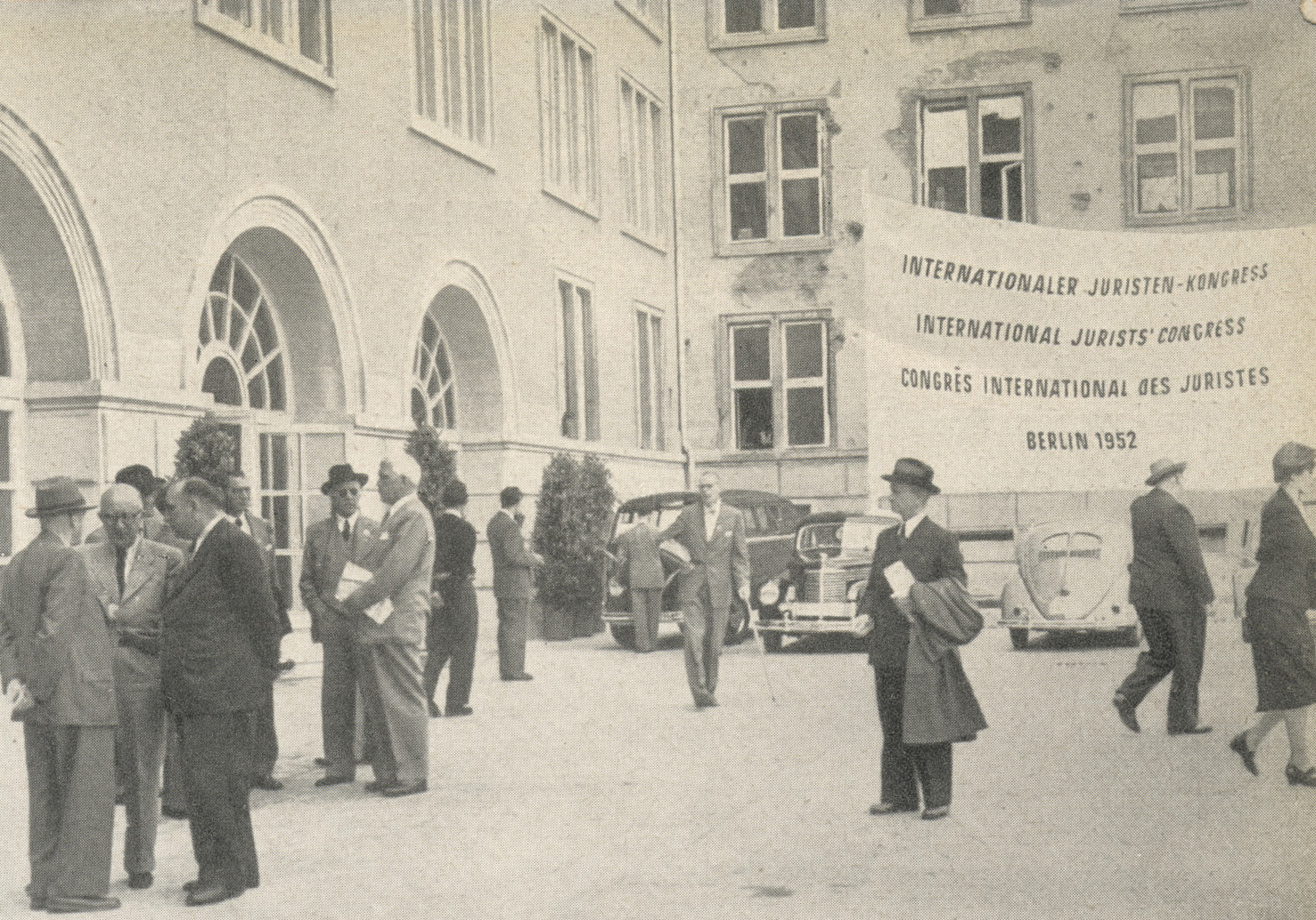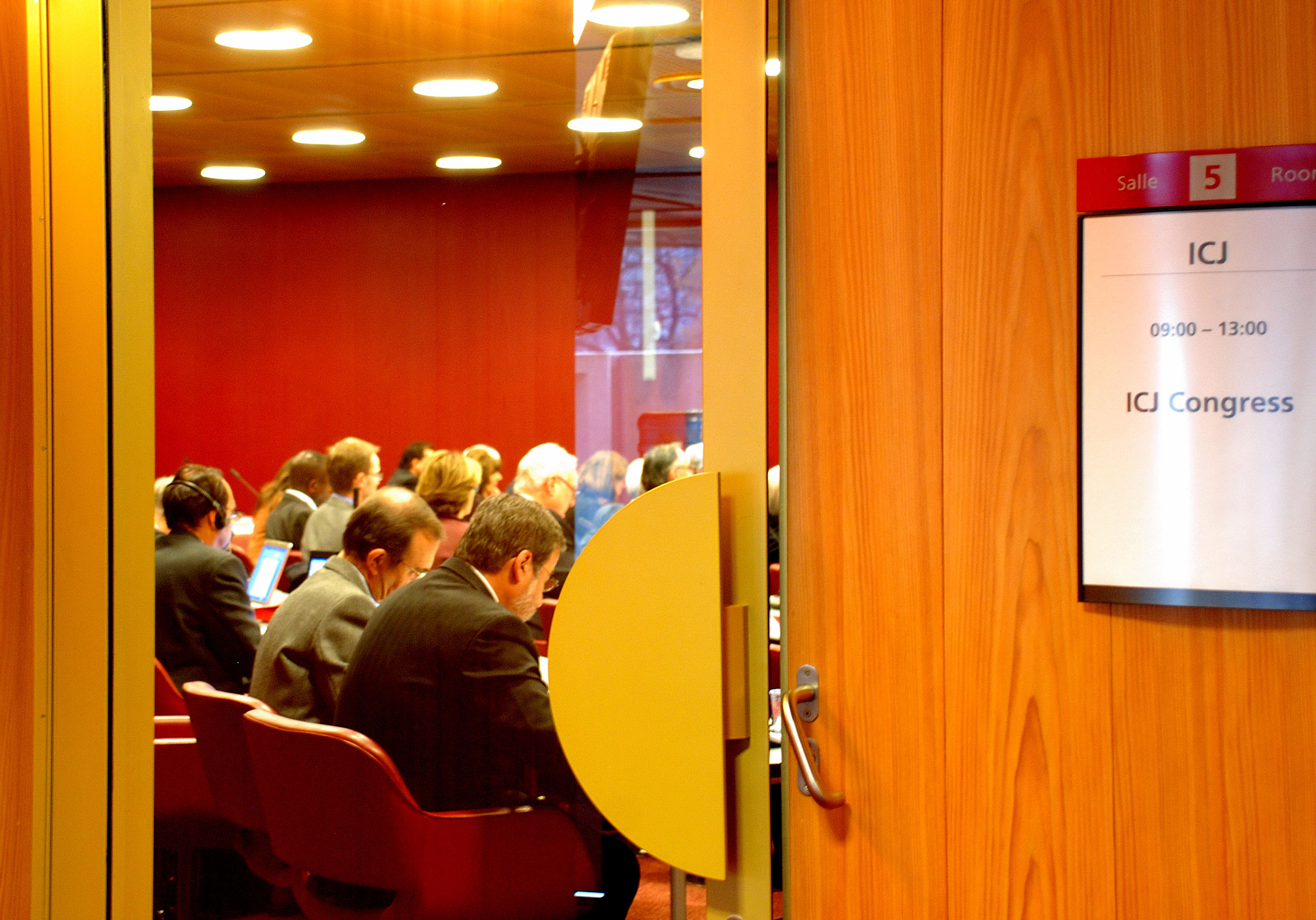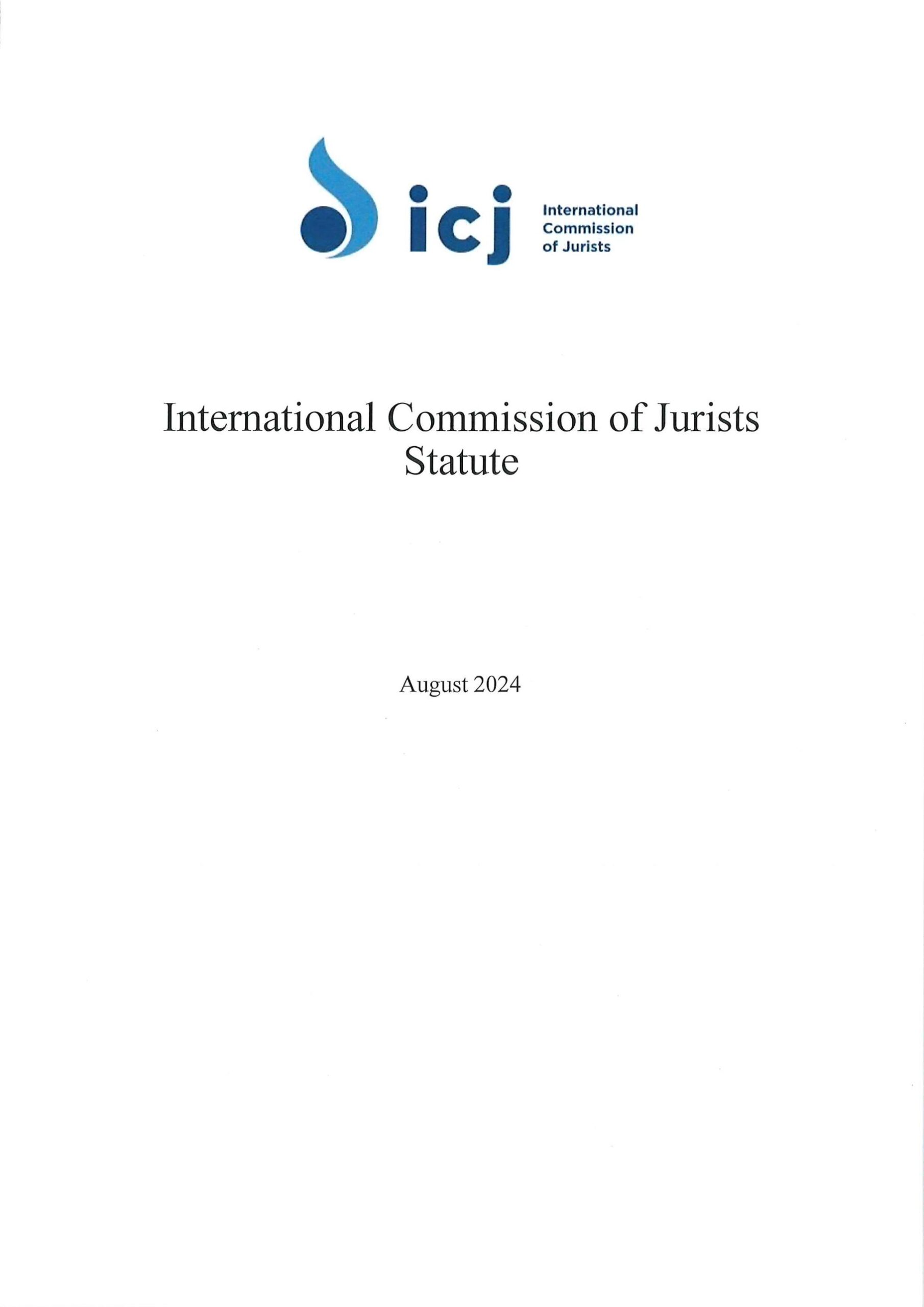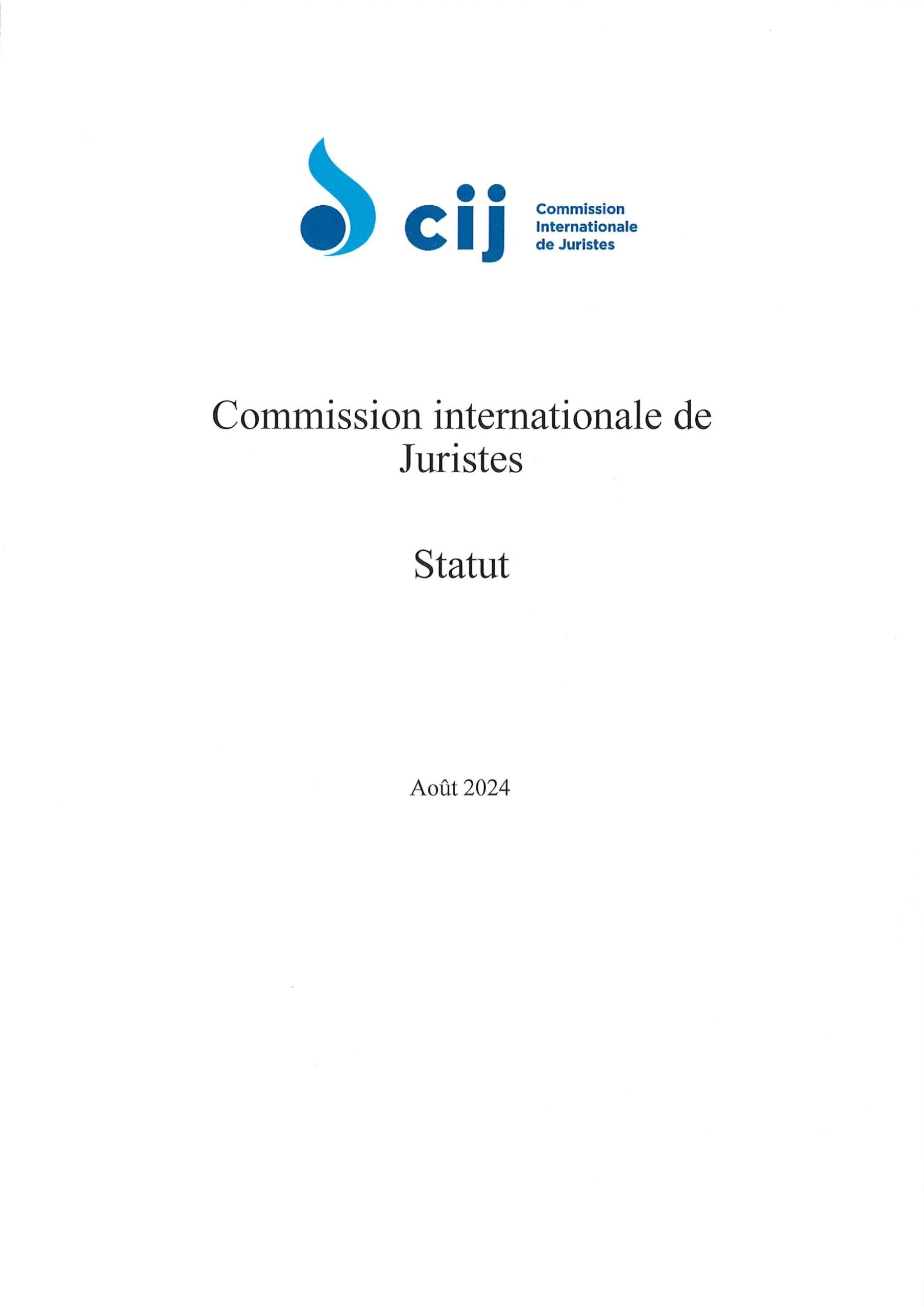About
Building a world based on human rights standards and rule of law.
The International Commission of Jurists (ICJ) is a non-governmental organization of leading judges and lawyers from around the world working to advance the rule of law and realization of human rights for all.
The Commissioners are 60 eminent judges and lawyers – from all parts of the world and all legal systems. They are selected for their experience, knowledge and fundamental commitment to human rights. They support the work of our legal teams to strengthen and implement international standards, improving legislation that has positively impacted the lives of millions of people.
We work globally to implement our mandate, with legal advisors based in the countries or regions that they cover and offices in Geneva (Switzerland), Brussels (Belgium), Bangkok (Thailand), Tunis (Tunisia) and Kathmandu (Nepal).
Vision
A just society governed by the rule of law where all people equally enjoy their human rights.
Purpose
- To ensure that people everywhere benefit equally from the rule of law and fully enjoy their human rights, and if those rights are violated, can seek and receive adequate remedies.
- To work for the progressive development and implementation of international human rights law and standards, in response to threats to human life and dignity.
- To assist judges, lawyers and prosecutors to be independent, impartial, and free to carry out their professional duties.
Mission
- We support the development of international human rights law and standards.
- We promote their adoption and implementation.
- We defend and preserve them when they come under attack.
- We work to ensure the independence of the judiciary, and support judges, lawyers, and prosecutors in their roles as human rights defenders.
Issues
The Commissioners are 60 eminent judges and lawyers – from all parts of the world and all legal systems – with unparalleled knowledge of the law and human rights. We have direct access to national judiciaries implementing international standards and have improved legislation impacting millions.
The ICJ works globally to implement its mandate. We have offices in Geneva (Switzerland), Brussels (Belgium), Bangkok (Thailand), Tunis (Tunisia) and Kathmandu (Nepal). Our legal advisors are based in the countries or regions that they cover.
- We support the development of international human rights law and standards.
- We promote their adoption and implementation.
- We defend and preserve them when they come under attack.
- We work to ensure the independence of the judiciary, and support judges, lawyers, and prosecutors in their roles as human rights defenders.
Institutional Policies
The ICJ Code of Ethics reflects our commitment to upholding the highest ethical standards and guides the conduct of all those acting on behalf of the ICJ. It is complemented by a set of institutional policies that promote equality, inclusion, and a safe, respectful working environment for all.
Congresses
Congresses of the ICJ – Commission and Network – and their theme:
- 2024 – Virtual – Supporting the Independence of the Judiciary
- 2019 – Tunis, Tunisia – The Tunis Declaration reaffirms ICJ’s commitment to defend the rule of law
- 2012 – Geneva, Switzerland – Declaration on Access to Justice and Right to a Remedy
- 2008 – Geneva, Switzerland – Upholding the Rule of Law and the Role of Judges & Lawyers in times of crisis
- 2004 – Berlin, Germany – Upholding Human Rights and the Rule of Law in Combating Terrorism
- 2001 – Geneva, Switzerland
- 1998 – Cape Town, South Africa
- 1995 – Bangalore, India – Economic, Social and Cultural Rights and the Role of Lawyers
- 1992 – Cartigny, Switzerland
- 1989 – Caracas, Venezuela – The Independence of Judges and Lawyers1
- 1985 – Nairobi, Kenya – Human and Peoples’ Rights in Africa
- 1981 – The Hague, Netherlands – Development and the Rule of Law
- 1977 – Vienna, Austria – Human Rights in an Undemocratic World
- 1971 – Aspen, USA – Justice and the Individual: The Rule of Law under Current Pressures
- 1966 – Geneva, Switzerland – The ICJ’s Mandate, Policies and Activities
- 1962 – Rio de Janeiro, Brazil – Executive Action and the Rule of Law
- 1959 – New Delhi, India – The Rule of Law in a Free Society
- 1955 – Athens, Greece – The Rule of Law
- 1952 – Berlin, Germany – The International Congress of Jurists
History of the ICJ
For over seven decades, since the Declaration of Human Rights was developed, the ICJ has played a seminal role in establishing international human rights standards and working towards their implementation. Through pioneering activities, including inquiry commissions, trial observations, fact-finding missions, public denunciations and quiet diplomacy, the ICJ remains a powerful advocate for justice.
1952

1952
1953
1955
1956
1958
Defining the principles of the Rule of Law

1963
1970
During this decade, the ICJ helped establish the Andean Commission of Jurists, the Inter-African Union of Lawyers, the Regional Council on Human Rights in Asia, and the South Asian Association for the Right to Development. The ICJ sent observers to significant political trials on 56 occasions in Africa, the Asia-Pacific, Eastern Europe, the Middle East and the Americas.
1973
1975 & 1976
1977
1978
1980
1986
1990
1997
1998
2004
2005

2006
2011
2014
2016
2017
2023
Since 2001, the ICJ has been led by Louise Doswald-Beck (2001-2003); Nicholas Howen (2004-2008) ; Wilder Tayler (2009-2017) ; Sam Zarifi (2017 - 2022 ) and Santiago Canton (2023 - present)


